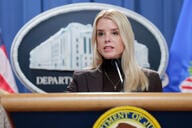You have /5 articles left.
Sign up for a free account or log in.

iStock
For some students, academic work can feel disconnected -- four or more years of courses stacked together like the equivalent of “if it’s Tuesday, it must be Rome.” Yet their college experience is full of curricular and co-curricular connections. Knowledge and method in one subject does not exist apart from all other disciplines, and the excitement of multiple perspectives from which to see the world is at the ready.
I regularly help students make such connections. Here’s what I do: one day near the end of the academic term, I ask them as they arrive to class to call out the title of their other classes. I write the name of the discipline that anchors that course on a large sheet of newsprint: a class in U.S. public policy gives us political science, for example, while one in calculus adds mathematics. Usually, by the time the whole class has settled in, we have just about every discipline on its own sheet of paper.
Then, I ask students to identify how our literature class connected to, informed, amplified, complicated, disagreed with or encouraged them to engage in conversation with what they learned (and how they learned it) in each of their other classes. Depending on the course, students stop and think for either a long or a short time. They also talk to each other while they do this and discover that, even though several of them may have had a psychology class, students in an abnormal psychology class see different connections in a literature class than students in developmental psychology, for example.
This past fall, I engaged my first-year students in this exercise. We had just completed a seminar focused on global women’s writing, during which we read fiction and poetry, viewed TED Talks and theater performances, and studied cultural and political histories to help us better understand context. We had made some connections already. Global women’s writing is about literature, certainly, and also history, political science, sociology, environmental studies, religious studies and so on -- but always in relation to the text, which occupied the center of our class.
Our end-of-the-term exercise shifted the center from the text to individual students, as they were asked to consider how their classes were in conversation with each other. Several students noted how social justice -- or “social injustice,” as one student wrote -- was threaded throughout our course as well as those in journalism and religious studies. One student wrote that her sociology course helped her see how environment “shapes a person’s identity.” Psychology students chimed in about the motivation behind people’s behaviors and noticed how that discipline talks about the “development of identity in adolescence” differently than a fictional or first-person narrative.
Classics, creative writing and history courses connected with our course through storytelling, as did film studies, with one student noting that there is “no one story.” Anthropology students, in particular, argued for the power of storytelling and observed how certain narratives become dominant in history.
Students who were co-enrolled in physical and natural science classes, seemingly far afield from our study of global women’s writing, identified particular connections about how knowledge is developed and structured. Chemistry students saw how each discipline relies on building blocks of knowledge to advance ideas, and how “reactions change the outcomes” of both characters and elements. Those students in physics and astronomy courses observed that natural phenomena “hold true in all regions of the world” and wondered about the phenomena of human nature. Another student noted that “almost everything is subjective; very little is for certain,” echoing a similar sense of interpretation and analysis of our course materials.
Students in both mathematics and computer science courses appreciated that those disciplines also have their own languages that communicate truths, similar to students studying French. Students in Spanish courses saw a conversation with our class around issues such as assimilation, identity fluidity, exile and immigration.
One of our sets of readings was Arundhati Roy’s novel The God of Small Things, along with several of her politically pointed essays. Students in an environmental studies course had not only studied population using as a case study Kerala, India -- the place where Roy sets her novel -- but they also concluded that “everything exists within systems … policy and environmental problems exist within and are influenced by systems. The same goes for characters and events within the novels,” they wrote. “They are products of the systems and structures that exist in the stories we read.”
Whole College, Whole Student
There’s a second piece to this exercise that gets at another crucial educational experience: colleges’ commitment to educate the whole student and to have the whole college experience educate the student. Once we had talked through all the imaginatively sophisticated ways their classes connected with each other, I then gave my students some ideas from Martha Nussbaum, who has written so eloquently about the value of a liberal education. This year, we used “Education for Citizenship in an Era of Global Connection” as our base, although there are other writings by Nussbaum and others that can work just as well.
In the article, Nussbaum makes three points about what capacities “are essential to the cultivation of humanity in today’s interlocking world”:
- the capacity for living a critically examined life;
- an understanding of other human beings; and
- a critical imagination.
She is talking about education, and more to the point, about liberal education -- the kind of education my students have embarked on but perhaps have not seen articulated in just this way.
Using Nussbaum’s contention about what capacities are essential, I asked my students to think about and provide examples of both coursework and other places that they’ve been educated this term. To help start the conversation, I offered the following questions:
- Where has your education this term given you the capacity for living a critically examined life?
- Where has your education this term given you understanding of other human beings?
- Where has your education this term allowed the expression of your critical imagination?
Some students talked about how they’ve already reconsidered their major or even their eventual careers. Others talked about their recognition of privilege. Many shared stories about living in the residence halls, with people who are simultaneously very different yet quite similar to them. Still others talked about assignments, theater performances, athletic contests or lab work as places where their critical imagination emerged. I am always humbled by the profound realizations my students have about their place in the interconnected world -- and their recognition and use of the tools that they already have to make their way forward.
My own college education was decades ago. So this exercise helps me remember that there is more to students than just who they are in my class and that all of their courses are presenting them with opportunities for success and challenge. That they are working to make sense of not only the subject matter for each class but also themselves as subject, figuring how subject matter and subject fit together in this thing called a college education. And it allows me to see their creativity and understanding in action, as the lightbulbs of critical interconnection go off over their heads and mine.




